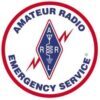KNW-138
Winterizing and Maintaining
Gas Powered Equip
The winterization or preparation for long term storage of gas powered equipment is often overlooked. This oversight, along with poor maintenance, can be costly and very frustrating. Believing that new equipment will perform well after a year without care can lead to danger or even death if the food in the fridge spoils or the heater doesn’t keep the cold at bay.
Small engine repair shops do a good business fixing equipment that would not have needed repair if the owner had read and followed the manual and taken care of their gas powered equipment. It may come as a shock to learn that the malfunctioning equipment, still in warranty, is not covered because of improper care and maintenance.
The most common error is leaving fuel in the equipment. Fuel should be drained or stabilized. For long periods draining is recommended. Current fuels that contain 10% ethanol partially evaporate fairly quickly which leaves behind either a gummy deposit or, longer term, a thin film of very hard varnish. You would never think of putting a coat of varnish on the delicate parts of a carburetor but that is what happens. These deposits will clog the carburetor and fuel system thus preventing fuel from reaching the cylinders. While this most often happens over the winter, it can also happen during the summer if the equipment is not used for a while…typically a month or more. This is the #1 reason why chainsaws and generators fail to start.
Again, follow your manufacturer’s instruction manual but generally…
Drain the fuel if the engine will not be started for a month or more
- Run the piece of equipment for a few minutes to warm up.
- Turn off the fuel to the carburetor and run until the engine stops.
- Drain the fuel tank and allow to air dry.
- Use the drained fuel in your vehicle or other gas engines.
- Some manufacturers recommend adding a bit of oil to the engine via the spark plug opening and cranking the engine over to coat everything.
- Drain all two-cycle engines as well HOWEVER do not use this fuel in your car. Because it does not store well, safely dispose of the fuel or use it in your chain saw or other two-cycle engine.
Adding fuel stabilizer
Read the directions and don’t use stabilizer if the engine will sit idle longer than the indicated stabilization period.
Fuel
It is highly recommended never to use gasoline containing ethanol in your small engines. Even a 10% blend of ethanol can ruin them if they aren’t carefully maintained as the ethanol/fuel mixture attracts moisture into the gasoline and rust will result. Stabilizers help but it is best to drain the system before storage.
Air filter
Either replace or clean the air filter. If it is a dry filter (usually paper type) and it isn’t too dirty, you can blow it out with compressed air. If it is an oil type (a foam pad) you can wash it out with hot, soapy water. Rinse it well, let it dry and then moisten with a bit of 30 weight oil.
Spark plug
Spark plugs should be regularly cleaned and gapped to keep the engine running smoothly and a bit of oil on the threads will prevent them from rusting. Follow the manufacturer’s recommendations for gappping and replacing plugs.
Clean the outside of the machine
Used compressed air to remove all the debris from the outside of the equipment. Wipe off any fuel or residue – some alcohol on a rag can help dissolve the gunk. Some, like me, have used a garden hose to wash everything off on a sunny day. Turn the generator on its side to drain and the leave in the sun for several hours until the metal has warmed up enough to dry all the nooks and crannies.
And again, your owner’s manual will help you with all of the above. If you properly maintain and winterize your gas powered equipment it will run the next time you need it which might just save a life…even your own.
That concludes tonight’s training. Are there any questions, comments or suggested additions to this material?
Thanks, this is (callsign) clear to net control.
Send corrections, modifications, updates or suggestions to k5prs@aol.com
